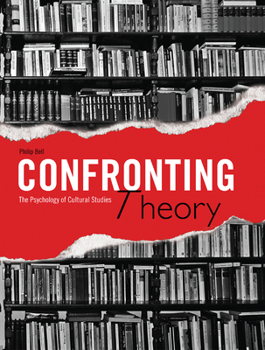Confronting Theory: The Psychology of Cultural Studies
Confronting Theory presents a critique of what has come to be known as theory in cross-disciplinary humanities education. Rather than dismissing theory writing as pretentious and abstract, Confronting Theory examines its principal concepts from the perspective of academic psychology and shows that although many of these analyses sound like revolutionary psychological theory, few, if any, have empirical implications that students can evaluate. By considering the educational implications of cultural theory, Confronting Theory will empower students with arguments, not just opinions, about the increasingly idealist and irrelevant anti-realist curricula they confront in their humanities education in today's universities.
Format:Paperback
Language:English
ISBN:1841503177
ISBN13:9781841503172
Release Date:May 2010
Publisher:Intellect (UK)
Length:147 Pages
Weight:0.70 lbs.
Dimensions:0.4" x 6.7" x 8.9"
Customer Reviews
0 rating





